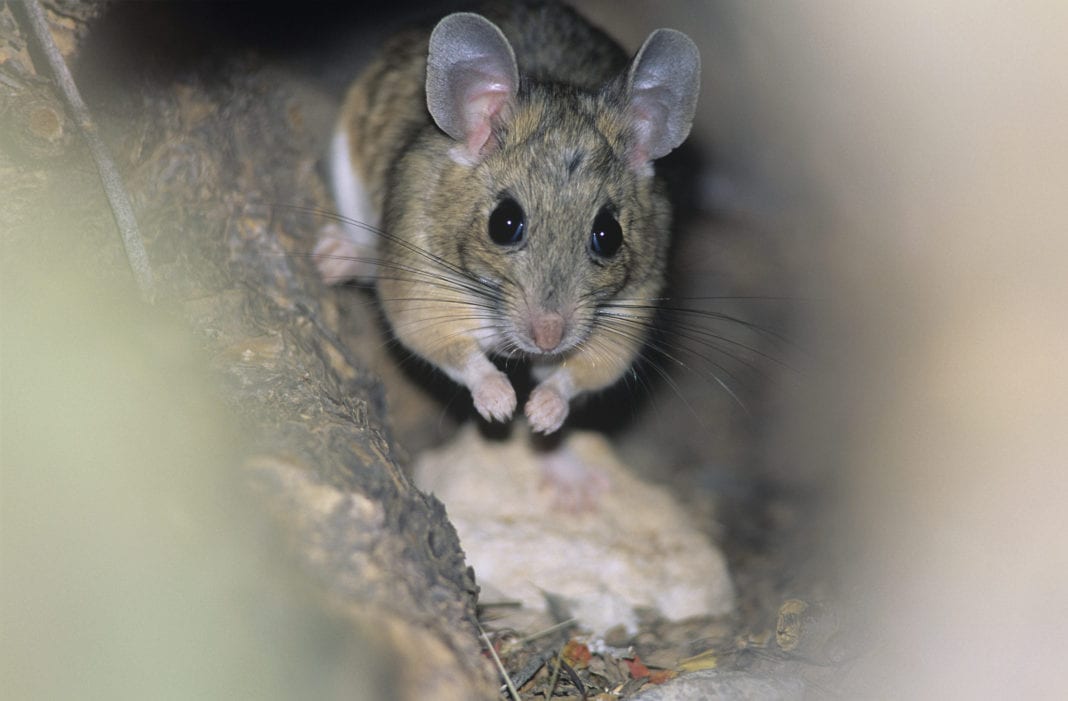Last updated on October 23rd, 2023 at 08:52 pm

If you want to use the leftovers in your garden, you can create a compost heap. On it you dispose, for example, the lawn clippings and other organic waste. Over time, this waste will decompose, giving you a nutritious soil.
Unfortunately, the compost is not only interesting for your garden. Rats could also take up residence there and find a new home in the compost pile.
Rats are considered to be carriers of diseases. In addition, they specifically look for food sources and can get into the house. To avoid further damage, it is advisable to control the rats in the compost immediately.
What methods there are and how you can best design your compost, you will learn in this guide.
Contents
What are the rats attracted to?
First, it is useful to internalize why rats like to visit the compost pile. After all, rodents actually prefer to feel comfortable underground and hide from people. Only when the rats proliferate and the actual habitat no longer offers enough space, the animals look for a new place.
The compost could be downright attractive to the rats because of the smell. This is the case if you dispose of food scraps on the compost pile. Meat scraps in particular are considered a delicacy for the Norway rat, so it finds a new place to live in the compost.
It’s not just food scraps that are tempting to rats. In winter, when outside temperatures drop below freezing, the rodent is on the lookout for warmer shelters. Higher temperatures prevail in the compost pile. Thus, these belong in the winter months as the first place to go when mice and rats want to warm up a bit. There is little you can do about the thermal processes within the compost pile. Therefore, other control measures are necessary to drive away the rats in the compost.
How do you control the rats in the compost?
If you leave the rats alone, they will continue to spread and will not stop at your house. Rats multiply at a furious rate and what at first seemed like a single rodent could quickly grow into a real rat infestation. Therefore, it is advisable to control the rats in your compost at the first sign of an infestation.
Keep an eye out for rat droppings near the composter and search the soil for other tracks. Often the small footprints are noticeable and will give you some assurance that the rat has taken up residence.
Perform the following methods to drive the rat away and return the compost to safe use for the garden.
Secure the compost
If you notice that rats are frequenting the area, you should make access to the compost more difficult. This can be done by placing the compost pile inside a wire grid. This can be equipped with a lid so that there is protection all around. There is no way through for rats and they will have to choose another place to live.
The grid should have a mesh size that is narrow enough to prevent rats from gaining access, but still allow other garden inhabitants to reach the compost pile. Earthworms, for example, are desperately needed to help process organic waste.
Avoid odors
Rats rely primarily on their nose when searching for suitable food sources. They have a fine sense of smell and can smell food scraps even from a long distance.
During composting, some odors are created that are attractive to the rat. Fermentables attract rats and signal that there is plenty of food.
Therefore, it is advisable not to dispose of kitchen scraps in the compost. These belong in the trash and should not be left out in the open.
If the odor level is high despite the precautionary measures, you can sprinkle baking soda. This binds the odorous substances and prevents them from being perceptible to the rats even over a greater distance.
In addition, you can avoid an intense odor by spreading organic waste widely in the compost. Do not leave it in just one place, but make sure it is evenly distributed.
Food scraps do not belong on the compost heap

Often compost is considered a kind of waste dump. Any organic waste gets onto it and is supposed to decompose there.
It is better not to dispose of food scraps on the compost. These can attract not only rats, but also other pests. Meat, sausage and cheese in particular are a delicacy for the migration rate.
Use the composter exclusively for vegetable scraps. Far fewer animals will take a liking to this, so rats will prefer to find another place to live.
Work the compost
Do you leave the compost pile to rot passively? Then you should pay a little more attention to it again.
Rats in the compost will feel disturbed if you work and dig up the compost. By digging it up, you also improve the properties of the compost pile so that the organic processes are improved.
Poke the compost with a pitchfork and dig it up. Rats will no longer feel comfortable in the compost pile and will be effectively driven away.
Set traps
If the rat infestation in the garden is still manageable and the animals are few, then setting up rat traps is recommended. Here you can resort to models that kill the rats or catch them alive.
With live traps, make sure that you promptly release the rodent far away. This makes the effort much higher, so it is advisable only for a small infestation.
If you want to drive the rats away as effectively as possible, lethal traps are available for this purpose. These work either with a percussive effect or an electric shock. After successful triggering, you dispose of the rat and can use the trap again. The effort is limited and the rats in the compost can be effectively controlled.
Rats in the compost
Rats are attracted to the food scraps and warmth of a compost pile. They often find optimal living conditions there and once they have taken up residence, they multiply rapidly.
To prevent damage and keep your compost healthy, you should implement defensive measures against rats early on. With the tips presented here, you will get rid of the rats in the compost and will not have to share your garden with the rodents.


